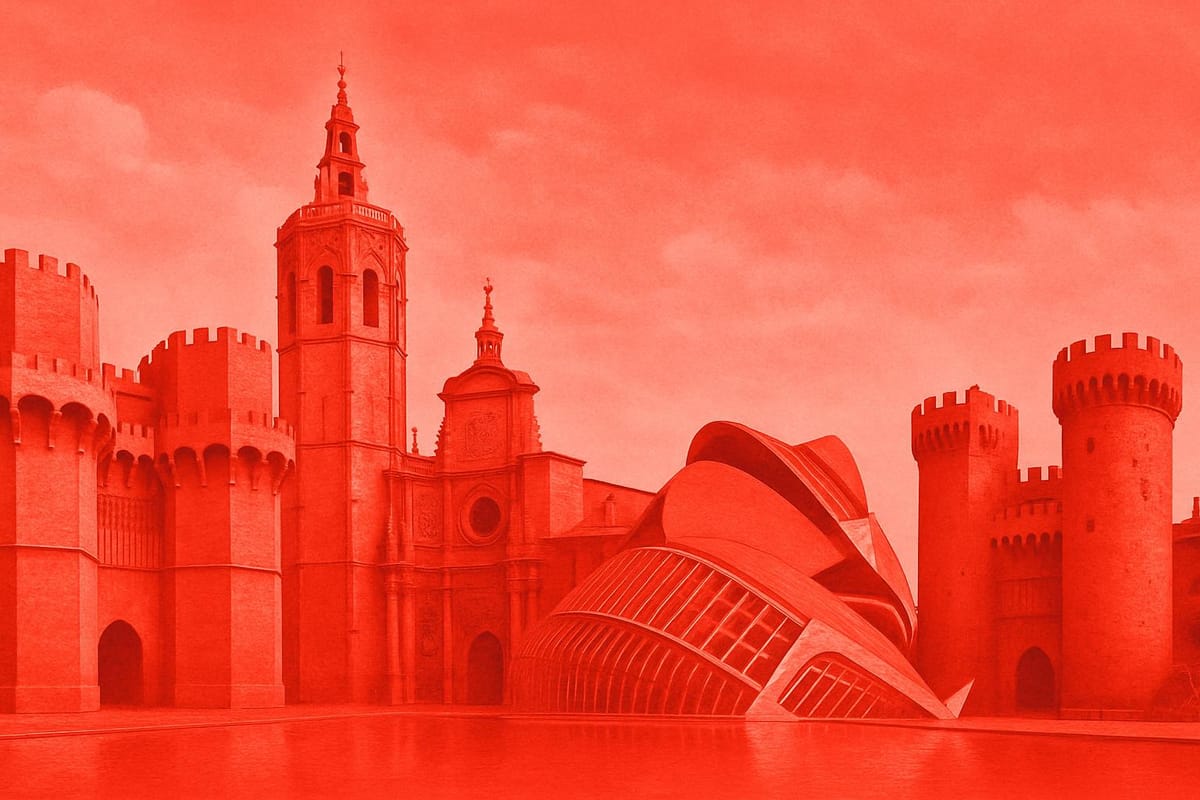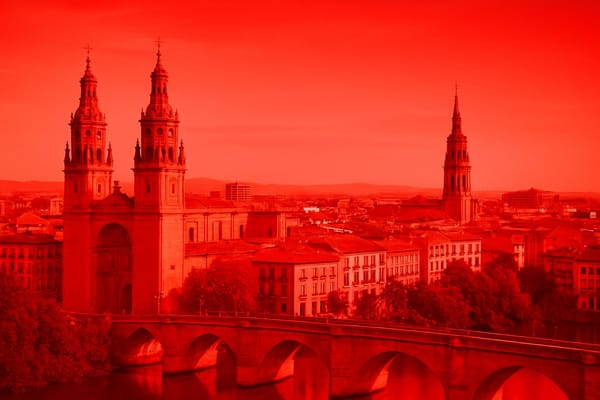Valencia
Mediterranean beaches, authentic paella, stunning architecture and vibrant festivals await.

Important things to know about Valencia
Valencia, Spain is a vibrant Mediterranean city where tradition and modernity blend into a distinctive urban rhythm, offering residents and visitors a rich tapestry of culture, gastronomy, and everyday life shaped by a mild sunny climate and a dynamic local economy; its streets hum with the sound of multiple languages including Spanish and the local Valencian language, while markets, cafés and neighborhoods reflect a deep commitment to community and culinary heritage-think fresh ingredients and the world-famous paella as hallmarks of a food culture that fuels social life and local identity-while commerce, technology and education drive contemporary growth, anchored by research institutions and a bustling university scene that attracts students and professionals, fostering innovation, startups and creative enterprises; urban planners balance historic quarters with sustainable mobility initiatives, promoting cycling, public transit and pedestrian-friendly spaces that enhance quality of life, and the city’s coastal position supports trade and maritime activity through a busy port that integrates Valencia into European and global networks; artistic expression, music and local craftsmanship thrive alongside festivals and everyday conviviality, creating a sense of belonging and adaptability that makes Valencia an appealing place to live, work, study or invest, with neighborhoods that combine affordability with cultural depth, making it a standout urban center in Spain for lifestyle, economic opportunity and Mediterranean living.
Sightseeing hot-spots in Valencia
Valencia, Spain, is a city that blends futuristic design and Mediterranean charm, making sightseeing in Valencia a rich experience for every traveler. The skyline is dominated by the City of Arts and Sciences, a striking complex where architecture and culture meet; highlights include the Oceanogràfic, Europe's largest aquarium, and the avant-garde opera house. Strolling along the renovated riverbed, visitors will discover the lush Turia Gardens, a green artery perfect for cycling or a leisurely walk, which connects many of the city's top attractions and provides a refreshing contrast to Valencia’s modern monuments.
The historic heart of Valencia offers a different kind of magic: narrow streets, Gothic facades and bustling plazas define the Old Town, where the Valencia Cathedral claims a central place with its mix of architectural styles and the reputed Holy Grail. Nearby, the UNESCO-listed La Lonja de la Seda (Silk Exchange) stands as a masterpiece of late Gothic civil architecture, and the Central Market delights food lovers with fresh produce, cured ham and Valencian specialties. Museums such as the Museo de Bellas Artes and countless charming cafés make this neighborhood a must-see for culture and gastronomy enthusiasts seeking authentic Valencia sightseeing highlights.
No visit to Valencia, Spain, would be complete without sampling local cuisine and natural beauty: golden sands at Malvarrosa Beach, sunset boat trips in the Albufera lagoon and a steaming pan of authentic paella, the city's most famous culinary export. Seasonal events like the explosive Fallas festival draw crowds for spectacular street art, fireworks and parades, underscoring Valencia’s lively cultural calendar. Whether your interests lie in architecture, history, food or coastal relaxation, Valencia offers diverse things to see in Valencia that satisfy first-time visitors and returning explorers alike.
Hotels to enjoy in Valencia
Valencia, Spain offers a diverse range of hotels to suit every traveler, from luxury hotels with rooftop terraces overlooking the Mediterranean to cozy boutique accommodations tucked into the charming lanes of the Old Town. Whether you’re searching for a family-friendly stay near the City of Arts and Sciences, a romantic escape by Malvarrosa Beach, or budget options close to the train station and airport, the selection of hotels in Valencia is designed to meet varied needs. Many properties highlight local cuisine with on-site restaurants, promote sustainable practices, and provide easy access to popular attractions like the cathedral, Central Market, and vibrant nightlife. Visitors appreciating comfort and convenience will find hotels offering free Wi‑Fi, modern fitness centers, airport shuttles, and multilingual staff, making Valencia an attractive destination for both leisure and business travelers.
Choosing the right hotel in Valencia, Spain improves your overall experience by putting you within walking distance of the sights you value most and offering competitive rates when booked ahead. For the best results, compare reviews, photos, and location maps to ensure proximity to the beach or the historic quarter, and look for flexible cancellation policies and included amenities that match your itinerary. Seasonal events, such as local festivals and sporting fixtures, influence availability and price, so planning early increases your chances of securing top-rated accommodation. By focusing on trusted descriptions and guest feedback, you can find a hotel that balances price, comfort, and location, ensuring your stay in Valencia is memorable and tailored to your travel style.
Restaurants to try in Valencia
Valencia is a vibrant city where Valencia restaurants showcase a rich blend of tradition and innovation, making the culinary scene a must-explore for food lovers. From bustling markets to elegant dining rooms, the focus on fresh, local ingredients defines Valencian cuisine: the famous paella, seasonal rice dishes, an abundance of seafood, and citrus-forward desserts reflect the region’s agricultural bounty. Strolling through neighborhoods like Ruzafa and El Carmen reveals cozy bars and creative bistros serving everything from classic tapas to contemporary reinterpretations of age-old recipes. The Central Market is a sensory hub where chefs and home cooks alike source the freshest fish, rice, and produce, and the proximity to the coast means many restaurants specialize in pristine, simply prepared seafood that highlights natural flavors.
Whether you are hunting for the best restaurants in Valencia or a casual tapas crawl, the dining options are diverse and layered. You’ll find intimate family-run places offering traditional rice pans, seaside spots near Malvarrosa and the Marina concentrating on grilled catch and fideuà, and innovative kitchens earning Michelin-starred recognition for refined tasting menus. Sustainable practices and modern techniques now sit alongside time-honored methods, enhancing the overall Valencia gastronomy experience. For visitors and locals alike, reserving ahead at popular venues is wise, especially during festival seasons, and exploring different districts ensures a well-rounded taste of what makes the restaurants of Valencia both regionally authentic and globally exciting.
Best shopping stops in Valencia
Valencia shopping offers a rich mix of traditional markets and modern retail that makes the city a top shopping destination on Spain’s Mediterranean coast. From the ornate stalls of Mercado Central, where fresh produce and local delicacies meet ceramics and gourmet souvenirs, to the elegant Mercado de Colón with designer cafés and artisan shops, visitors will find everything from high-street fashion to unique artisan pieces. Strolling down Calle Colón reveals flagship stores and Spanish brands, while hidden boutiques in El Carmen and Ruzafa showcase independent designers, vintage finds, and handmade espadrilles and textiles. Whether you’re searching for traditional Valencian ceramics, paella pans, or contemporary accessories, shopping in Valencia blends culture and commerce in neighborhoods that invite discovery.
Beyond central shopping streets, Valencia’s shopping scene extends to modern malls and lively flea markets that satisfy varied preferences and budgets. Large centres like Aqua Multiespacio and El Saler combine international retailers with dining and entertainment, while weekend markets and local artisan fairs focus on sustainable and locally made goods. Food lovers can pair a shopping day with horchata and local tapas, sampling products directly from vendors at markets where the city’s gastronomic heritage shines. With a strong emphasis on local craftsmanship, accessible boutiques, and a friendly mix of old and new, Valencia shopping provides memorable keepsakes and contemporary finds for every traveler.
Nightlife highlights in Valencia
Valencia nightlife pulses with a mix of historic charm and contemporary buzz, making Valencia, Spain a top destination for evening adventures. From cozy tapas bars in winding streets to high-energy clubs with international DJs, the city's after-dark scene caters to every taste. Strolling through El Carmen and Ruzafa you’ll find intimate cocktail lounges, craft beer pubs, and flamenco nights that showcase local talent, while the waterfront offers sun-soaked beach clubs where summer parties last until dawn. Food plays a starring role in the nightlife experience - share paella on a terrace, try traditional horchata, or hop between pintxos bars as the city lights up, creating memorable nights that combine gastronomy with vibrant entertainment.
For those seeking live music, Valencia nightlife delivers everything from jazz and indie bands to electronic sets at sleek venues and warehouse-style parties in reinvented industrial spaces. The City of Arts and Sciences provides a dramatic backdrop for nighttime walks and cultural events, and seasonal festivals often extend into the early hours, drawing locals and visitors alike. Whether you prefer a relaxed evening sipping cocktails on a rooftop or a full-on club crawl, Valencia’s late-night culture is diverse, accessible, and distinctly Mediterranean, promising unforgettable evenings in one of Spain’s most dynamic cities.
Getting around in Valencia
Valencia’s transport network is well tuned for travelers, with Valencia Airport (VLC) located just about 8 km from the historic center and linked to the city by a reliable metro service as well as regular buses, taxis and car-rental options, making the Valencia airport to city transfer typically straightforward and convenient; for rail travel, the city boasts two complementary hubs-València Joaquín Sorolla, the modern terminal for high-speed AVE/Euromed services connecting Valencia with Madrid and Barcelona in under 2–3 hours depending on the route, and the more central València Nord (Estació del Nord) which handles regional and commuter traffic including Cercanías services to nearby towns and beaches-together these Valencia train stations ensure strong national and regional connectivity. Whether you’re optimizing an itinerary around quick Valencia trains to Madrid, seeking scenic regional rail trips to Alicante or Tarragona, or prioritizing a fast metro from the airport to your hotel, the integrated ticketing options and frequent schedules make getting around Valencia, Spain efficient for tourists and business travelers alike, with clear signage in multiple languages and helpful station facilities that support smooth interchange between air and rail.
Culture must-see's in Valencia
Valencia, Spain, is a vibrant city where tradition and modernity meet, offering culture highlights that capture the best of Spanish and Valencian life. The annual spectacle of Las Fallas showcases towering papier-mâché monuments, fireworks and community spirit, while historic sites like the Lonja de la Seda and the historic center reveal Gothic and Baroque heritage. Architecture lovers flock to the striking City of Arts and Sciences, a futuristic complex designed by Santiago Calatrava that complements the city's rich museum scene, including important museums of fine art and contemporary collections. Street art, local theaters and bustling plazas create a lively urban tapestry where art and performance are part of everyday life, drawing cultural travelers seeking authentic experiences in Valencia.
Beyond landmarks, Valencia’s cultural highlights extend into food, nature and neighborhood rhythms that define Spanish culture in this region. The culinary scene centers on paella, traditionally cooked in the nearby Albufera and savored at family gatherings, while markets like the Central Market brim with fresh produce and the sweet refreshment of horchata. The transformed riverbed of the Turia Gardens provides a green spine for cyclists and picnickers, and miles of beaches offer seaside leisure alongside vibrant festivals and nightlife. Whether exploring galleries, sampling regional cuisine, wandering cobbled streets or enjoying outdoor spaces, Valencia delivers memorable cultural experiences that combine heritage, innovation and the warm hospitality characteristic of Spain.
History of Valencia
Valencia’s story begins long before modern Spain, rooted in the foundation of Valentia by Roman settlers around 138 BCE on the banks of the Turia River. Over centuries the city absorbed layers of culture and power: from Iberian and Roman organization to the Visigothic period and then the transformative arrival of the Moorish rulers in the 8th century, who left an indelible mark on irrigation, agriculture and urban layout. The Reconquista led by King James I in the 13th century created the Kingdom of Valencia, codifying laws and privileges that shaped local identity and governance. Medieval Valencia flourished as a Mediterranean hub of trade and culture, with the silk industry, maritime commerce and civic institutions like La Lonja reflecting its prosperity and craftsmanship. Religious and linguistic diversity produced a distinctive Valencian character, while architectural landmarks-from Gothic churches to fortified walls-record the city’s strategic importance and evolving aesthetic.
The modern era of Valencia, Spain, weaves resilience and innovation into that historical tapestry, with 19th- and 20th-century industrialization, social change and urban renewal reshaping the cityscape. A catastrophic flood in 1957 prompted the diversion of the Turia and eventually created the green heart of the city, now the famous Turia Gardens, while contemporary projects like the City of Arts and Sciences symbolize a forward-looking cultural ambition. Valencia’s Fallas festival, cuisine centered around paella, and thriving port activity continue to draw global visitors interested in the history of Valencia Spain and its living traditions. Today Valencia balances preservation and modern growth: restoration of medieval quarters sits alongside cutting-edge museums, research centers and a dynamic economy rooted in agriculture, tourism and industry. This layered past, from Roman foundations to contemporary innovation, makes Valencia a compelling case study in how historical continuity and change shape a major Spanish city’s identity and future.



